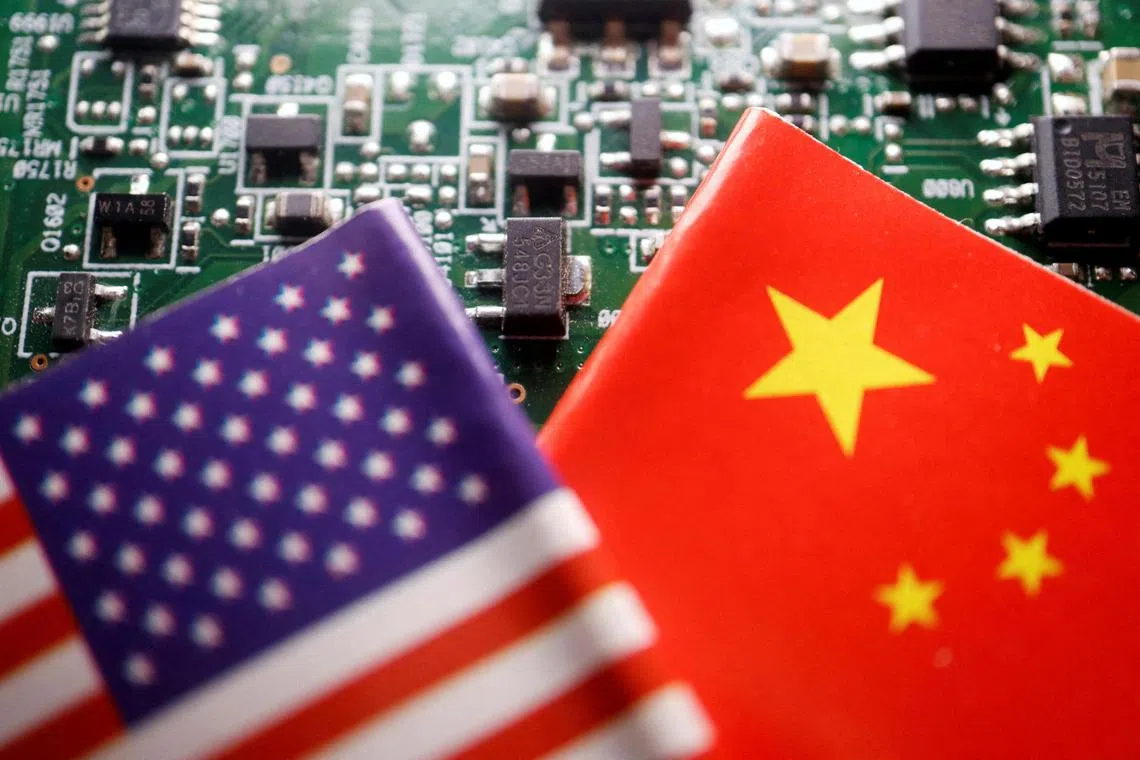US investors flag retaliation risks after Biden’s China tech curbs
Sign up now: Get ST's newsletters delivered to your inbox

American investors said they were worried Beijing would retaliate or pull back from buying American technology.
PHOTO: REUTERS
new york - While US markets mostly shrugged off President Joe Biden’s move to prohibit some US technology investments in China, American investors said they were worried Beijing would retaliate or pull back from buying American technology.
Aiming to protect national security and prevent US capital and expertise from aiding China’s military modernisation, Mr Biden this week issued an executive order barring some new US investments
US investors were unfazed by the initial news, saying that the restrictions, at first blush, were more limited than feared and unlikely to extend to passive investments in public Chinese stocks.
But several portfolio managers said the bigger worry was whether China would strike back, as it has in the past.
“Much depends on how China decides to react to that,” said Cherry Lane Investments partner Rick Meckler.
“The very significant technology war between the countries is a big negative and the administration seemed to be trying to make that announcement without making too many waves with China.”
Mainland China and Hong Kong equity indexes fell on Friday morning, with the Hang Seng technology index declining around 2 per cent.
In response to Mr Biden’s executive order, China’s Commerce Ministry said it was “gravely concerned” and reserved the right to take countermeasures.
Some China analysts said Beijing’s options are limited and would unlikely escalate the matter. Others, though, thought that view was too optimistic.
China in May targeted US chipmaker Micron Technology after Washington imposed a series of export controls on American components and chipmaker tools to China, and the US has accused Beijing of penalising other American companies amid growing tensions between the two global economic powerhouses.
“It is naive to think that there won’t be some type of retaliation from China,” said Mr Tom Plumb, chief executive of mutual fund Plumb Funds.
China could restrict exports of rare earths used in consumer electronics, electric vehicles and other components, or target other US technology firms, he said.
Self-sufficiency
China hawks in Washington say American investors have transferred capital and valuable know-how to Chinese technology companies that could help advance Beijing’s military capabilities.
Beijing, for its part, has been seeking self-sufficiency in the intensifying tech disputes, which could also stem the flow of capital into US companies and markets.
“This is obviously going to put China in a position where they’re going to try to reduce their dependency on any US company for higher levels of technology,” said Mr Plumb.
US private equity and venture capital investors, which have already pulled back from China, are likely to sit on the sidelines while they await more clarity on how the rules will be implemented, Reuters reported on Wednesday. Some portfolio investors are also reducing their exposure to China.
Mr Michael Ashley Schulman, chief investment officer at Running Point Capital Advisors, said some clients had already asked for reduced or zero China exposure via stocks, bonds and exchange-traded funds.
“After the government’s announcement, I suspect that we may receive a few more similar requests,” he said. REUTERS


